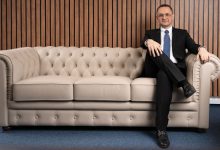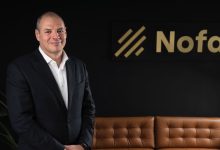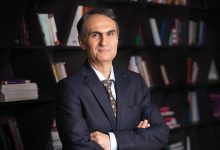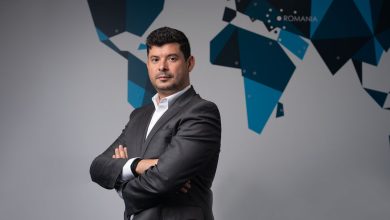Costel Lungu & Marius Cioaca: Kraftanlagen Romania – projects and solutions for the oil and gas sector
Kraftanlagen Romania, founded in 2007, has expanded, starting with 2014, the range of services offered to customers, adding to its portfolio the execution of projects for the entire oil and gas sector, including their management. About customized solutions, business expansion and about development strategy Mr. Costel Lungu and Mr. Marius Cioaca, General Managers of the company, have offered us details.
How and when did the subsidiary of the German company Kraftanlagen start operations in Romania?
Costel Lungu: Kraftanlagen was set up in 2007 as a subsidiary of Kraftanlagen Munich GmbH to provide maintenance services for the refining industry in Romania. In 2014, Kraftanlagen Romania, employing 270 personnel, has expanded its services by establishing Kraftanlagen Romania E&A SRL (30 personnel) and KAROM Servicii Profesionale in Industrie SRL (Professional Services for Industry), reaching thus a number of 650 employees.
In other words, you’ve heavily increased the capacity. This should lead to an important growth.
Marius Cioaca: The development of services in Romania should bring, besides an increase in turnover, also a supplement to the business portfolio, in order to provide our customers full services. It is important to recognize the signs coming from the market and to develop based on this growth together with our customers.
What kind of services do you provide for industrial customers? Does the range include customized/dedicated innovative solutions to companies working in the oil and gas sector?
Costel Lungu: If in the beginning the operations were mainly driven by maintenance services, today the main operation is directed towards the implementation of projects for the oil & gas, starting with simple projects and ending to the most complex, for EPCC which require know-how from all fields, including their project management.
We can say that, after eight years of activity in Romania, Kraftanlagen has reached the position to provide its customers customized solutions that fully meet the increasingly complex requirements in terms of maintenance and new construction for refineries, extraction, production and industrial equipment.
What role will acquisitions play in the future?
Marius Cioaca: We want to expand our business through organic growth, joint ventures, through innovations and additional acquisitions.
What projects is the company currently running and who are your most important business partners?
Costel Lungu: We run projects for the Downstream and Upstream segments for OMV Petrom and mechanical works for the Petromidia refinery overhaul. We are also operating in various projects with Kraftanlagen Munich GmbH in Germany. I would like to say that if at the beginning of Kraftanlagen only the colleagues from Germany were coming to Romania to work together and also to exchange experience, now we are able to send teams to take part in the refining sector projects in Germany. We worked hard to get to the same quality standards, and we have succeeded!
The new European objectives in terms of flexibility, energy efficiency and sustainability force the companies to redefine their development strategy. What is Kraftanlagen’s approach in regard to this subject?
Costel Lungu: Together with our colleagues from Kraftanlagen Munich GmbH we currently focus on optimizing and combining our available resources in order to increase the flexibility and the responsiveness of Kraftanlagen Romania and of the group respectively. Let’s not forget that in the eight years of operations in Romania we have developed skills in the area of engineering, electrical and project management that allow us to develop on sustainable bases. The elements that contribute to achieving those objectives are the investments in equipment and personnel.
How did the current economic context influence the financial situation of your company?
Costel Lungu: Our business is influenced by investment cycles in Upstream and Downstream. The continuous fall of oil prices led to stopping, delaying or reducing numerous investment projects. The constant pressure from clients to reduce prices forced us to rethink strategies and to permanently seek solutions to streamline the activities and to increase internal performance. 2014 was a year of good results from the financial and business development points of view. Thus, if during 2014 our operations were directed mainly to the Downstream sector, as of 2014 we also strongly operate in the Upstream sector, with investment projects and in the maintenance area.
Furthermore, we have also diversified our product portfolio by adding electrical operations and project management activities. Let’s not forget that since 2012 we operate also on the German market, last year was a landmark as we have sent a complex team (over 50 people) for one month for overhauling activities in a refinery. The confirmation of our success came in 2015, when we received another contract for the same type of project at the Karlsruhe Miro refinery in Germany. We closely watch the growth, to avoid registering losses and, through the mix of markets and services we offer, we try to maintain our operations and the personnel within the undertaken level.
Quality is one factor that influences costs. How are the efficiency and the increase of internal performance related to quality?
Marius Cioaca: Kraftanlagen’s quality standards are at the highest level. Even if we have to cut costs in difficult times, we cannot compromise on quality. We are convinced that only a company that is prepared for countercyclical investments is ready to face the future. Our long-term collaboration with the customers confirms the assessment of this commitment. Cost savings can be applied to internal processes, which simplify and render more efficient the procedures and timing. The key word for reducing costs is, to a certain extent, innovation in order to continuously develop the quality.
You have an extensive experience in the petrochemical and refining industry, as next year you will celebrate 25 years of operating in this field. How do you estimate the industry’s development and what developments do you see in the future?
Costel Lungu: I had the chance to see this industry both as a young mechanic, who discovered for the first time the refinery equipment and as HR, finance and trade officer. Today, the Romanian refining industry is connected and influenced by the international market developments. There are influences from the financial area, from politics, from the strategies of various manufacturers in this industry. The exploitation and refining industry in Romania has gone through profound transformations and restructurings, has become today an industry approaching the Western standards (sometimes surpassing them) and forcing service companies to constantly improve the mix of services, the know-how and, why not, the financial stability in order to become credible partners.
What are the conclusions and what advice would you give to young people, following your route from young apprentice to general director?
Costel Lungu: Perseverance, thoroughness and the ability to learn and respond to daily challenges are the issues that can help in achieving the objectives. But all this must be achieved after many hours of work and study.
Sometimes it depends on us to change the future!
On the same issue of the younger generation, what objectives does the Kraftanlagen training programme have and whom does it target?
Costel Lungu: One of the great challenges we face is finding qualified staff (locksmiths, piping personnel, welders, engineers). The Romanian market has commenced to lack qualified personnel in these areas. On the one hand, fewer young people accept these jobs, and if they want to, they don’t have where to learn the practice, as the training is only theoretical. The Romanian school must change and move from the theoretical to the practical system. On the upper level, requests are coming from students or recent graduates who are not rooted in reality or are not in accordance with what they can offer. The language barriers are a great challenge too. We must not forget that the oil & gas industry is connected to international influences. If we can’t communicate or can’t access information, then we will not be competitive.
What are the priorities on your agenda for the coming period?
Costel Lungu: To identify and to develop synergies within the Kraftanlagen Industry division of Kraftanlagen Munich GmbH that would allow the development of the business portfolio and the identification of new customers in Romania, in the region and on Romania’s old traditional markets.







